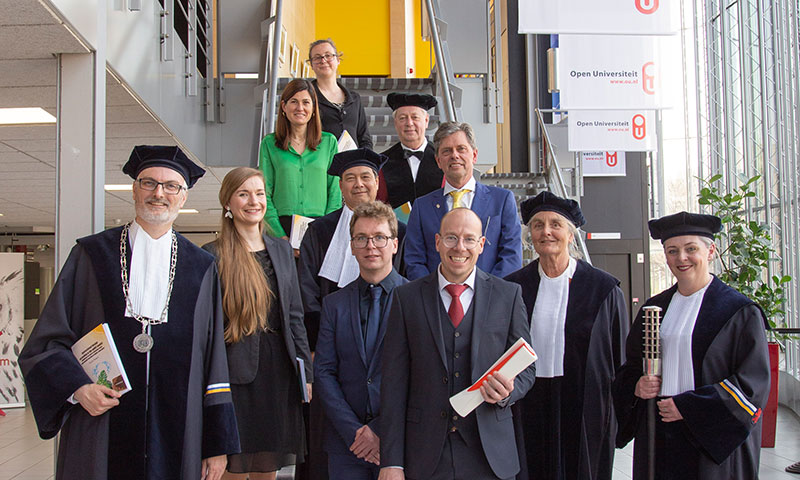News
Making a difference for university teaching with research
[12.12.2022]Whether it's excellent papers, a theses, special presentations, or simply exciting new findings - we are pleased with our members for their successes. Slavisa Radovic (PhD), for example, showed with his dissertation how digital teaching can be better supported in practice. His goal: to make a difference for better studying.
 Photo: Open Universiteit
Photo: Open Universiteit
He actually studied mathematics. But through his involvement in projects that revolved around how digital platforms can improve teaching and studying, Slavisa Radovic realized that he could make a positive difference for teaching and studying. So he changed subjects and focused on educational science for his dissertation.
International experience, excellent dissertation
A research grant enabled him to conduct research in England, Greece, France and Amsterdam. At the Free University in Amsterdam, he completed his PhD in educational sciences - and even as one of the best eight in the university's history. His topic? A model, the Instructional Design Model, that provides tips and guides for educators, with the goal of designing digital learning environments to best accommodate students.
"For instructors in the higher education landscape, there is still very little applicable science that could point to how to make courses more exciting and effective. So we went and pulled together possible tips from existing theory and science, categorized them in a two-year field study, and evaluated them. The result was our model, which is now not only being used for a course in Amsterdam, but is also currently being implemented by professors in England and the USA. Important pillars include: Authenticity, Collaboration and Reflection.
This combination of new theoretical model and direct implementation in teaching, was convincing and Slavisa received a rating among the top two percent.
Reflection as a key competence
Here at FernUniversität, Slavisa is now continuing to work with Dr. Niels Seidel on digital learning platforms in the APLE project - more specifically, on adapting the learning platforms in an adaptive and personalized way to students so that they can learn in a better self-regulated way.
"Reflection is an important pillar here, and we should always encourage it. Teachers often think that students reflect on assignments or their learning anyway. But the truth is that this is a complex cognitive skill and students don't always find reflection easy. We now know how to initiate reflection, what it should look like, and when and how it should take place”, the scientist explains.
"To do this, you also need to know there are different levels of reflection, the higher the better," says Slavisa Radovic. Questions that help students here, for example, are:
- How have their views changed after learning?
- How can they match what they've learned with previous practical experiences?
"Reflection should also always follow important learning events, such as a practical session. Just reflecting on a task is much less effective than writing down your thoughts. Sharing the reflection task with other course participants, also helps by perceiving other perspectives," says Slavisa Radovic.
Within CATALPA, Slavisa Radovic now brings his international experience to the table. "For me, the work here at FernUni is particularly exciting because all projects are carried out with implications for practice - to make studying better and more efficient. The combination of educational science and analytics are, in my opinion, the 'next big thing'."

